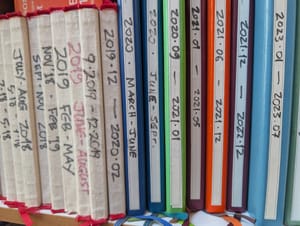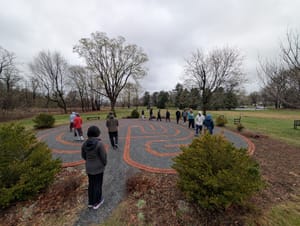As a society, we are facing a crisis of understanding.
Fake news is just the latest expression of a deeper problem: We have more and more difficulty thinking about (and talking about) complex topics.
In short, it’s hard to convey nuance and multiplicity with the media we have today.
Social networks are built to facilitate transmission of ideas that can be embodied in a catchy meme or 140 characters and a Twitter card. Anything that requires a few paragraphs or more to explain sufficiently runs the risk of being ignored or (at best) misrepresented under a catchy headline.
Online news sites live and die based on how many monthly visitors they get, which means their headlines and story choices are all geared towards generating clicks and shares, not understanding.
Television “news” focuses, as it always has, on the sensational and the provocative, and it has even started catering to the need for short-attention-span entertainment by adding background music and jokes.
Radio, for the most part, is dominated by those who can shout their opinions the loudest and provoke the strongest listener reactions. The exceptions, like NPR and PRI, are somewhat better, but even public radio has a hard time conveying complexity or nuance in a 4 minute segment (or even an hourlong weekly science show), given the imperative of entertaining and engaging the audience.
And even an ostensibly #longread-friendly environment like Medium suffers from human nature’s tendency to focus on the pithy highlight, the tweetable excerpt, the clickable headline.
Yes, in part this is human nature. We are programmed to notice the new, and to respond quickly and viscerally to stimuli that promise food or sex, or that seem to present a threat.
But as Daniel Kahneman has written in Thinking Fast and Slow, that is not the only mode of human thinking. It is also possible to engage a more logical, deliberative mode of thought. This mode of thinking is not as fast at coming to decisions but it is better suited to problem-solving, especially when the problems have many contributing factors, competing stakeholders, and unpredictable outcomes.
We need this kind of slow thinking, especially now. Because while our media leads us to ever-simpler, ever-more-catchy reflexive ways of intuitive thinking, the world itself is incredibly complex. Some examples:
- What happens when the Arctic warms to 50 degrees above its normal December temperature is the result of an incredibly complicated system of interactions. What will happen next is hard to predict. What to do about it is even harder to figure out. And yet discussion online devolves into simplistic binaries: “the climate crisis is real and we’re fucked,” versus “global warming is a Chinese hoax.”
- The companies that are working on autonomous vehicles, such as Google and Uber, seem to be getting closer and closer to truly “self-driving cars.” What will this mean for the tens of thousands of people for whom driving a car — or a truck — is their livelihood? How soon will self-driving cars actually be on the road? How autonomous will they be? How should governments respond to ensure the safety of all on the roads? How will insurance companies respond? How do we build a safety net, or alternate employment, for those who may be put out of work? None of these are easy questions to answer, particularly since the technologies themselves are still in development and their future arc is not entirely clear.
- Health care in the U.S. seems in some ways incredibly advanced and in other ways the system seems complex and opaque and on the verge of collapse. Efforts to improve its functioning, such as Obamacare, are themselves incredibly complex, and that leads to further misunderstandings, errors, unpredictable outcomes, and, yes, political mischaracterizations. A slogan like “repealing Obamacare” might play well politically but practically speaking it’s far from clear how that might work, and how to proceed in a way that doesn’t lay waste to vast numbers of stakeholders, from those in poverty to those who own stock in insurance companies.
As a writer, a former journalist, and person who currently makes a living helping companies communicate better, I think about this constantly. Those of us in the “content business,” broadly speaking, have a responsibility to find ways of matching what we produce with the complexity of the world around us.
It is not just a matter of raging against the publication platforms and the social media available to us. Likewise I think it is useless to rant about the stupidity of the public (though that is often a satisfying outlet for the frustration of attempting to communicate). And we certainly can’t accomplish this by lecturing to people about how they need to pay closer attention and read that 10,000-word essay by Elizabeth Kolbert more closely.
No, I think we need to use our skills as communicators to engage readers and draw them in to stories that convey complexity and nuance. There is some hope here: As Nicholas Thompson has written, long-form storytelling is a thriving niche. There is demand for longer, more complicated stories, especially those that are well-told.
But length alone is not enough. I’ve read too many #longreads that seemed to be long for the sake of length, as if writing more words conveyed an impression of seriousness and depth. Actually, it does, but that’s just another example of how our intuitive brains can be easily fooled by superficial things. If you take the time to read these long stories closely, you’ll quickly realize which ones are long because they need to be long, and which ones really just need more editing.
So that brings me to the question I’m asking myself — and anyone who cares to join me — in 2017:
How can writers, journalists, designers, filmmakers, and artists work to convey complex, important ideas more accurately, completely, and engagingly?
That’s the question that motivates me this year. What about you? If you have good answers to this question, or — even better — some questions of your own, I’d love to hear from you.
Illustration by Daniel Friedman on Flickr.



